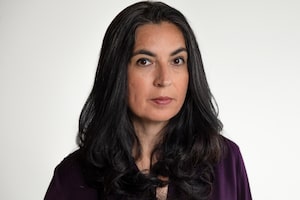June is graduation season. It is also National Indigenous History month, four weeks set aside to celebrate and reflect on what it means to be First Nations, Métis or Inuit.
It is not lost on me that the quintessential juxtaposition of Canada is experienced this month, in two starkly different realities: a celebration of obtaining a diploma in a country where, for about 100 years, children were forced to attend so-called schools that worked to erase who they were – places that took so much that generations afterward continue to pay the price of what Canada did.
So it is important to pause and acknowledge the realities of this month and how they can intersect. How will this next generation step up and build a just society of fairness and truth for all who live on this land, when the generations before them have failed miserably?
Indeed, a safe, equal and equitable education was not a true option for all Canadian students, as the truths of this country were not taught in Canadian schools for too long. The ruinous, racist policies of the Indian Act made it law for Indigenous children to be abducted from their families, their language and homes – from everything they knew – and thrown into the Indian residential school system. Parents were imprisoned if they did not send their children to these so-called schools, institutions designed to assimilate and erase everything a child holds dear to them.
Indigenous children in the residential school system never got to know the value, pride and utmost importance of a truly rich public education. They never had that right, but this is something that graduates have come to know, and something that they have achieved.
To new graduates, I say: Your education has trained you to become truth-seekers. Never abandon that. Lean into it.
You are the next generation. You have worked so hard to get in the seats you are sitting in now. Some of you are the first generation in your family to ever make it to university – a dream of an education, hard-fought and now realized. Some of you are also children, grandchildren, great-grandchildren of residential school survivors – as am I.
You may not have had family role models or mentors – no one to academically guide or support you – but you managed to do it. You put your head down and fought your way through your studies, through all those exams and tests, through all those part-time jobs in coffee shops, bars and stores, all because you had a dream, and it had to be paid for.
The actual purpose of your education is to help you open your mind to who you are, your purpose to why you are here and where you fit in the greater community of which you are a part. How can you make a difference for the greater good? This is the secret to living a balanced life: The Anishinaabeg call this mino-bimaadiziwin.
No matter where you are from – whether it’s large urban cities full of institutes of higher learning and soaring skyscrapers, or rural and suburban communities and fly-in First Nations, or farmlands and blips on the highway and communities in the bush – we are all connected. The success of one of us is the success of all of us.
Our ancestors, our Elders, have passed down to us seven teachings that will lead to balance with others – not just your friends and families and communities, but also with nature, with the Earth, sky, water. We are connected to all and to each other.
I believe that all of us, Anishinaabe or not, can learn from the seven sacred teachings. We should all take them to heart, and use them every day as a compass to guide our words and actions.
Love: to know love, is to know peace.
Respect: to honour all of creation is to have respect.
Bravery: to face life with courage is to know bravery.
Honesty: to walk through this life with integrity is to know honesty.
Humility: to accept yourself as a sacred part of creation is to know humility.
Wisdom: to cherish knowledge is to know wisdom.
Truth: to know of these seven things is to know the truth.
As graduates go forward, they will feel challenged by what they see and feel. But these seven teachings help act as a guide, steering us toward the sanctity of community and belonging. With them, we can cut through the chaos of all that is swirling around us, and help lead us all on a path forward.
Keep your Opinions sharp and informed. Get the Opinion newsletter. Sign up today.
 Tanya Talaga
Tanya Talaga